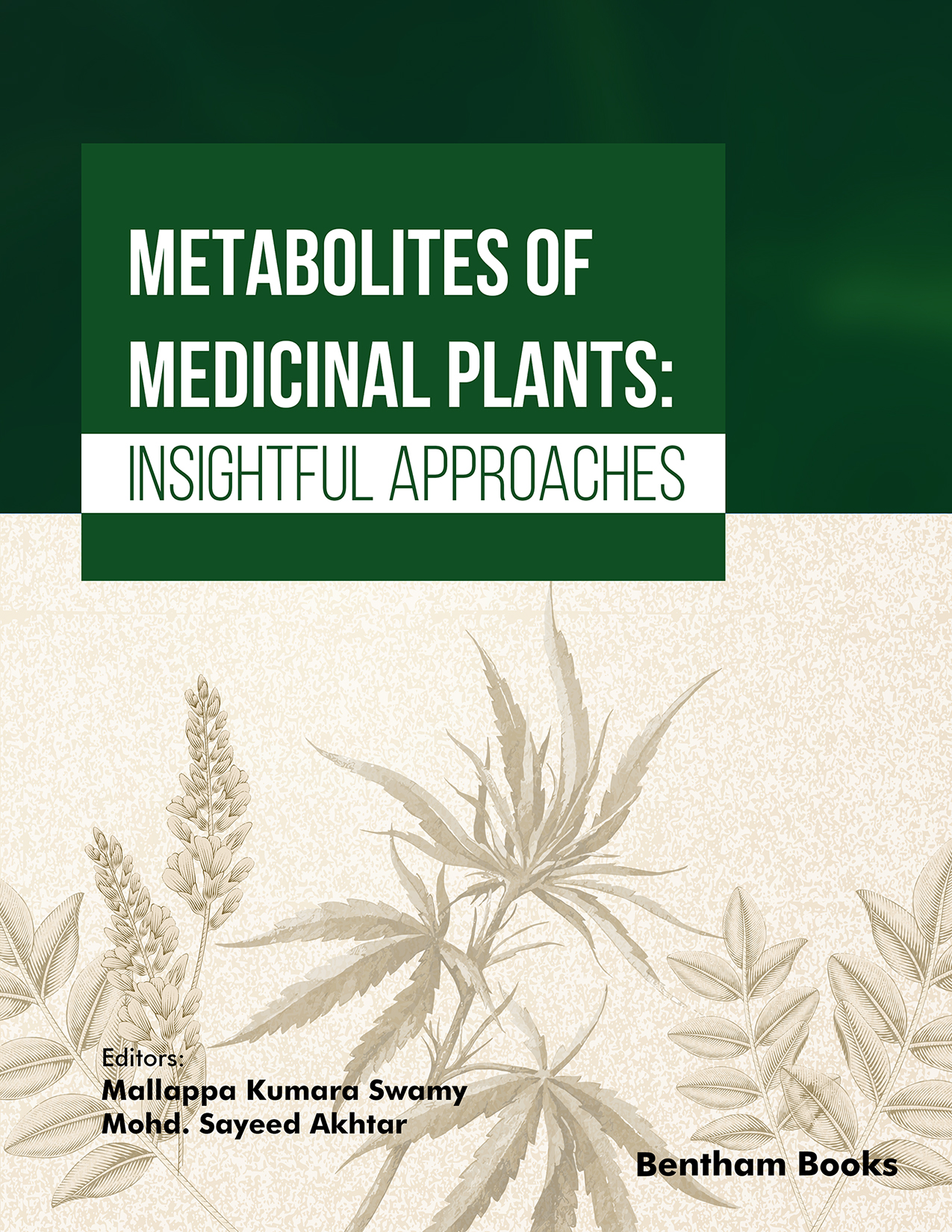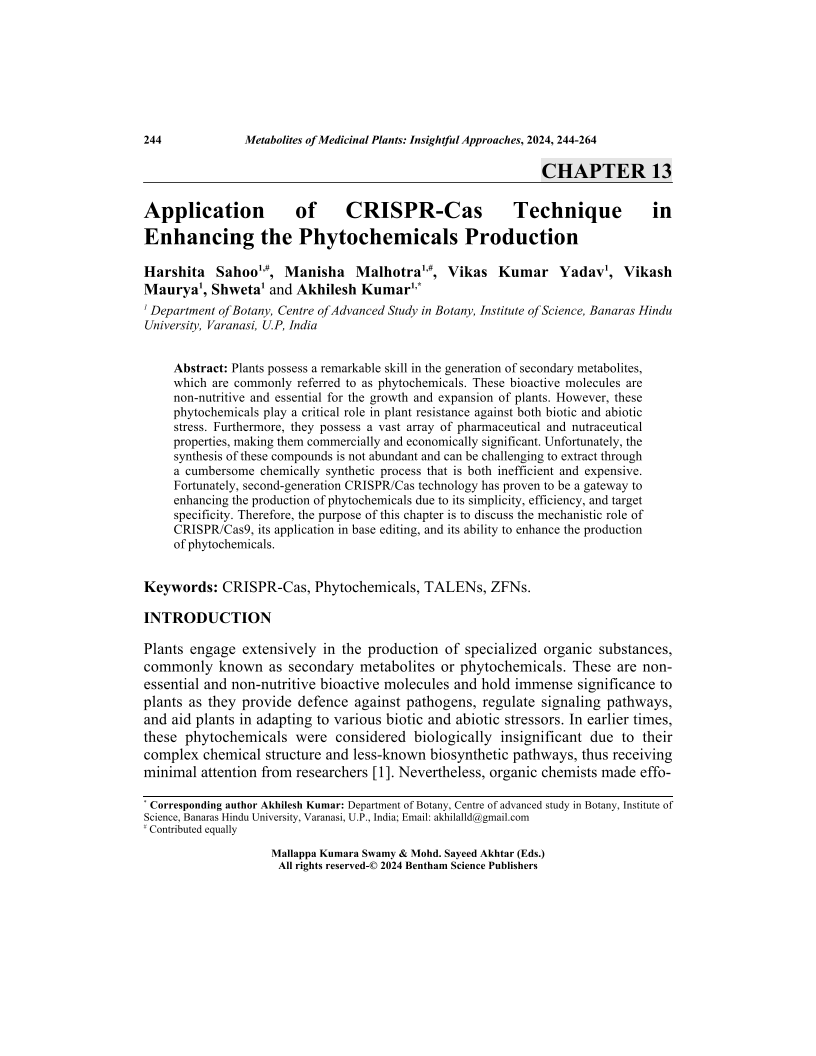Application of CRISPR-Cas Technique in Enhancing the Phytochemicals Production

- Authors: Harshita Sahoo1, Manisha Malhotra2, Vikas Kumar Yadav3, Vikash Maurya4, Shweta5, Akhilesh Kumar6
-
View Affiliations Hide Affiliations1 Department of Botany, Centre of Advanced Study in Botany, Institute of Science, Banaras Hindu University, Varanasi, U.P, India 2 Department of Botany, Centre of Advanced Study in Botany, Institute of Science, Banaras Hindu University, Varanasi, U.P, India 3 Department of Botany, Centre of Advanced Study in Botany, Institute of Science, Banaras Hindu University, Varanasi, U.P, India 4 Department of Botany, Centre of Advanced Study in Botany, Institute of Science, Banaras Hindu University, Varanasi, U.P, India 5 Department of Botany, Centre of Advanced Study in Botany, Institute of Science, Banaras Hindu University, Varanasi, U.P, India 6 Department of Botany, Centre of Advanced Study in Botany, Institute of Science, Banaras Hindu University, Varanasi, U.P, India
- Source: Metabolites of Medicinal Plants: Insightful Approaches , pp 244-264
- Publication Date: December 2024
- Language: English
Application of CRISPR-Cas Technique in Enhancing the Phytochemicals Production, Page 1 of 1
< Previous page | Next page > /docserver/preview/fulltext/9789815274103/chapter-13-1.gif
Plants possess a remarkable skill in the generation of secondary metabolites, which are commonly referred to as phytochemicals. These bioactive molecules are non-nutritive and essential for the growth and expansion of plants. However, these phytochemicals play a critical role in plant resistance against both biotic and abiotic stress. Furthermore, they possess a vast array of pharmaceutical and nutraceutical properties, making them commercially and economically significant. Unfortunately, the synthesis of these compounds is not abundant and can be challenging to extract through a cumbersome chemically synthetic process that is both inefficient and expensive. Fortunately, second-generation CRISPR/Cas technology has proven to be a gateway to enhancing the production of phytochemicals due to its simplicity, efficiency, and target specificity. Therefore, the purpose of this chapter is to discuss the mechanistic role of CRISPR/Cas9, its application in base editing, and its ability to enhance the production of phytochemicals.
-
From This Site
/content/books/9789815274103.chapter-13dcterms_subject,pub_keyword-contentType:Journal -contentType:Figure -contentType:Table -contentType:SupplementaryData105

